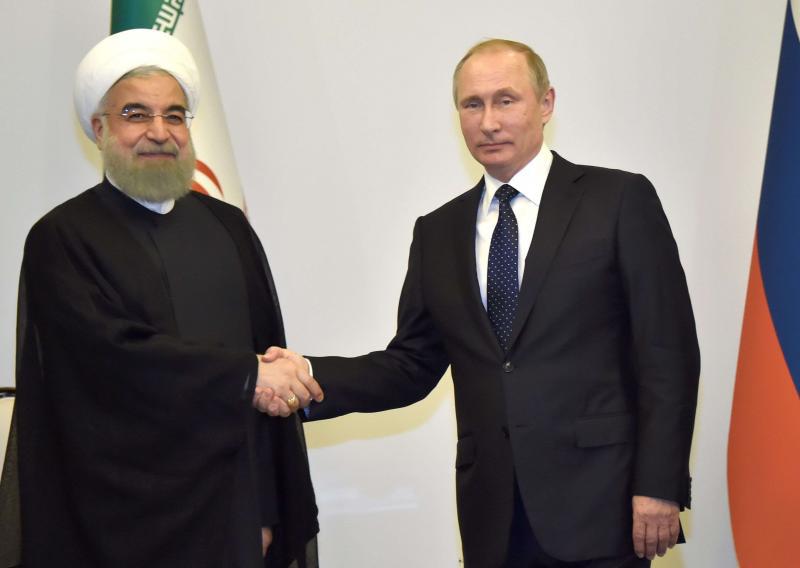Russia, Iran and Syria: strange and strained alliances
Russia, Iran and Syria — talk about strange bedfellows. You could not get three more opposing ideas and philosophies than from those three. Well, except for the fact that all are authoritative states ruled by autocratic leaders with a deep-rooted desire to spread their political agendas and to dominate as much of the world as possible. (Except for Syria, which is just trying to survive).
For these regimes, the end justifies the means. Respect for human rights is a concept that is alien to leaders in Iran, Russia and Syria, where this love triangle originated.
Russian President Vladimir Putin and his Iranian counterpart, Hassan Rohani, found solace in Syria’s dictator Bashar Assad whose ruthlessness was used to remain in power, regardless of the cost to the country in terms of human lives or the infrastructure.
After facing a bleak future early in the conflict, Assad appears to have won the war, largely thanks to his allies. If this can be considered a victory in any real sense when the country lies devastated, entire cities in ruin, huge sections of the population turned into refugees, the economy flattened, commerce and trade disrupted and the intellectual capital of the nation escaping to resettle on safer shores. In that regard, yes, one can say Assad is victorious.
The political and military alliance brought about by the necessities of the civil war in Syria is a strange and strained one. It is a marriage of convenience. The rapprochement between Tehran and Moscow is unlikely to survive far beyond the immediate needs of what is required to keep Assad in power in Damascus, which each side has its own egoistic reasons to support. What happens when Syria’s war ends and Moscow starts to look beyond today?
There has never been much love between Moscow and Tehran. During the Cold War the Kremlin funnelled funds and supported Tudeh, the local communist party, which the shah went after with a vengeance. The Soviets hoped to install a regime more favourable to Moscow. After the mullahs ousted the monarchy, the theocracy in Iran hunted down the communists, picking up where the shah had left off.
Hmmm, there was something in the news just the other day about Russian interference in another country’s elections. Do we see a pattern here? Moscow may have undergone a change of regime but its policies at times seem unchanged.
While the subject of the talks between Putin and US President Donald Trump at their summit in Helsinki may never be known, there is increasing belief that Syria was discussed at length.
Under the Trump administration there appears to be less involvement — or even willingness to get involved — in Syria. Syria is one clear situation from which the United States bowed out, leaving the theatre of operations entirely to the Russians.
This is particularly so since the apparent defeat of the Islamic State (ISIS). The United States seems to ignore the region preferring to focus exclusively on Iran.
Washington’s involvement in Syria was more focused on the role and influence of ISIS than the role of Syria and what it means to have an unstable Syria in the region.
Trump repeatedly said that he does not want to keep a military presence in Syria after the defeat of ISIS. However, he also stated he would like to see Iran’s military presence in Syria reduced and its regional influence curtailed. The only way to reconcile those two objectives, withdrawing from Syria and containing Iran, is through cooperation with Russia.
Could there be a trade agreement reached between the two great powers? An agreement that would see the United States and its regional allies (Israel and the Arab Gulf states) stop undermining the Assad regime (and thereby accepting Russia’s domination in Syria) in exchange for forcing Iran out. In a perfect world, such a swap, the Syria-for-Iran deal, should make everyone happy.
Well, except for Iran.
Russia, several media reports said, was willing to cooperate in Syria but only as a first step towards addressing more fundamental differences with Washington. Russia’s intervention in Syria has much broader objectives than keeping Bashar Assad in power.
Claude Salhani is a regular columnist for The Arab Weekly.
This article was originally published in The Arab Weekly.







